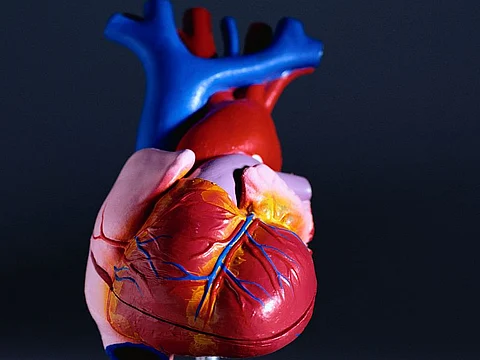TUESDAY, Dec. 1, 2015 (HealthDay News) -- Endurance exercise seems to accelerate arrhythmogenic ventricular cardiomyopathy (AVC) pathogenesis in transgenic mice with the desmoplakin R2834H mutation (Tg-DSPR2834H), according to an experimental study published online Nov. 6 in the American Journal of Physiology: Heart and Circulatory Physiology.
Ruben Martherus, Ph.D., from the Cincinnati Children's Hospital Medical Center, and colleagues examined how chronic endurance exercise contributes to DSP mutation-induced AVC pathogenesis. For 12 weeks, the authors exposed transgenic mice with overexpression of wild type DSP (Tg-DSPWT) or Tg-DSPR2834H, as well as control non-transgenic (NTg) littermates, to sedentary conditions or a daily running regimen.
The researchers found that 4-week old mice from all groups displayed normal cardiac function at baseline. All mice retained normal cardiac function and left ventricular morphology when subjected to exercise; Tg-DSPR2834H mutants, but not NTg and Tg-DSPWT, displayed right ventricular (RV) dilation and wall thinning. Focal fat infiltrations in RV and cytoplasmic aggregations consisting of desmoplakin, plakoglobin, and connexin43 were seen in Tg-DSPR2834H hearts. These aggregates coincided with disruption of the intercalated disks, intermediate filaments, and microtubules. After exercise Tg-DSPR2834H mice showed decrease of nuclear GSK3-β and AKT1 levels, with reduced p-GSK3-βSer9, p-AKT1Ser473, p-AKT1Ser308, and loss of nuclear JUP. In contrast, in response to exercise, Tg-DSPWT showed upregulation of p-AKT1Ser473, p-AKT1Ser308, and p-GSK3-βSer9.
"Our study suggests a potential mechanism-based approach to exercise management in patients with AVC," the authors write.
Abstract
Full Text


